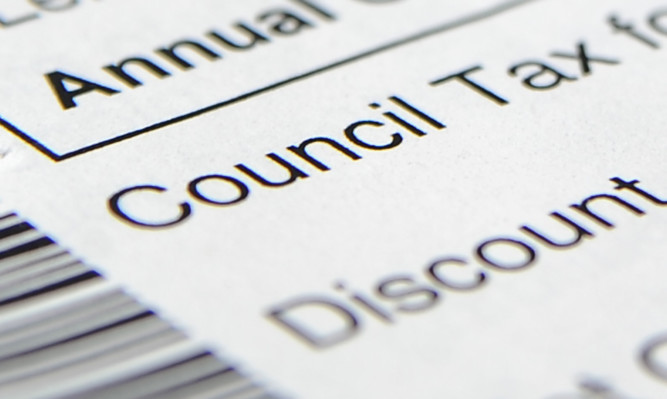The council tax freeze is not underfunded and claims that the Scottish Government does not offer a fair deal to local authorities are not borne out by statistics, Scottish Parliament researchers have found.
The Scottish Government faces frequent criticism from opposition parties, councils and unions over the money it hands to local authorities, with claims of increasing centralisation and a failure to properly compensate councils for the SNP’s flagship pledge to keep council tax frozen.
However, the Scottish Parliament Research Centre (Spice) found the council tax freeze is actually “overfunded”.
Local government’s share of public spending between 1999/2000 and 2015/2016 has shown only a “modest” reduction of 0.2%, in contrast to Labour’s claim that “heavily centralised commitments, such as the underfunded council tax freeze, are placing an unbearable burden on local authorities”.
Police and fire services have recently come under central government control, meaning council budgets have decreased substantially but they no longer have to fund these services, leaving them a similar pot of cash to fund remaining services.
Spice said: “The extent to which local government has received a ‘fair deal’ from the Scottish Government is the subject of much annual debate in the Parliament.
“Over the period 1999 to 2016, local government’s share of the Scottish Government budget has decreased from 36.2% to 32.2%.
“However, once police and fire budgets are added back in for 2013-14 to 2015-16 to provide figures closer to a like-for-like basis, local government’s share has decreased by only 0.2% to 36.0%.”
It added: “Since the council tax freeze was introduced in 2008-09, there has been much debate over whether it is ‘underfunded’ – whether the additional £70 million paid to local authorities each year is enough to cover what could have been raised had local authorities had control over rates.
“In fact, the money provided by the Government to freeze the council tax has resulted in local authorities receiving more income than they would have done by increasing rates by RPI (retail price index).
“The council tax base has increased over this period due to factors such as revaluations of existing properties and new properties, which will have the effect of increasing council tax income despite the freeze.
“Therefore, on the basis that the freeze was intended to compensate for a foregone per annum increase in council tax, it could be said that the freeze, over the period 2008-09 to 2013-14, was ‘overfunded’.
“In total, over the six years, this has resulted in an estimated £164.9 million extra going to local government as a result of the freeze.”
Labour has repeatedly claimed in Holyrood that the council tax freeze is “underfunded”, most recently in a debate on protecting public services in January.
Mary Fee, then the party’s housing spokeswoman, said: “An ageing and growing population, increasing operational costs and heavily centralised commitments, such as the underfunded council tax freeze, are placing an unbearable burden on local authorities, which are screaming out for financial assistance.”
In a submission to Holyrood’s 2015/16 budget scrutiny in October, union Unison said: “The underfunded council tax freeze benefits the rich most and severely impacts on local government finances. This needs to end; the best route forward is a new, fairer property tax to be collected locally.”
A cross-party commission has recently been established to examine alternatives to council tax and is due to report in autumn 2015.
The SNP shelved a 2007 manifesto pledge to replace the council tax with local income tax. Leaked documents later revealed it could have left a funding gap of about £380 million a year.
Commenting on the Spice report, SNP MSP Kevin Stewart said the report has “completely demolished years of bogus claims from Labour “.
He added: “The public sector in Scotland has faced tough challenges in recent years with Tory cuts passed down from Westminster – but the Scottish Government has done everything we can to support front line services, and it’s right that we pay tribute to the council staff who work so hard to provide these services.
“With independent experts completely rubbishing Labour’s position on the council tax, it’s time for (Scottish Labour leader) Kezia Dugdale and Labour to apologise for eight years of these grossly misleading claims – and to take the opportunity to completely rethink their negative brand of politics.”
